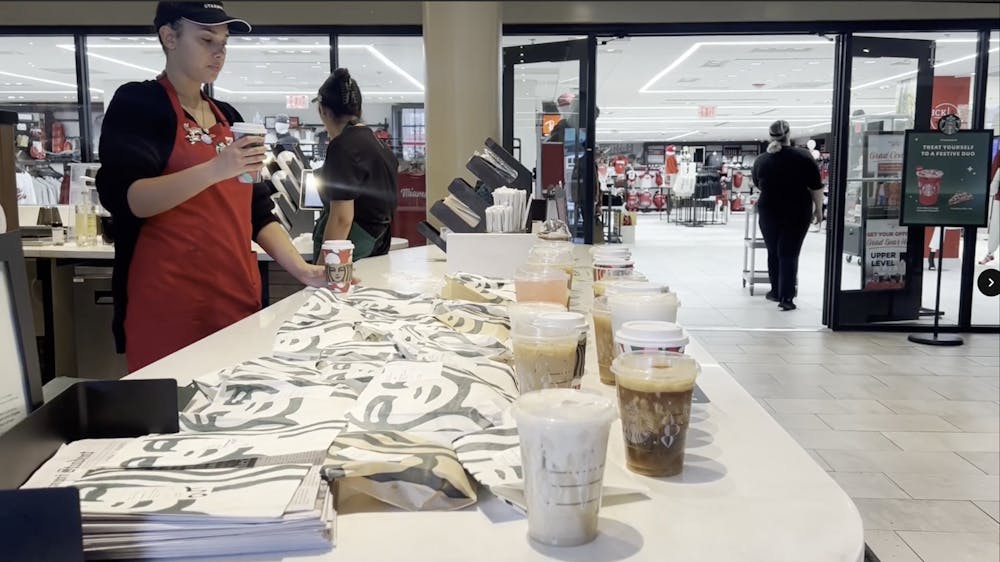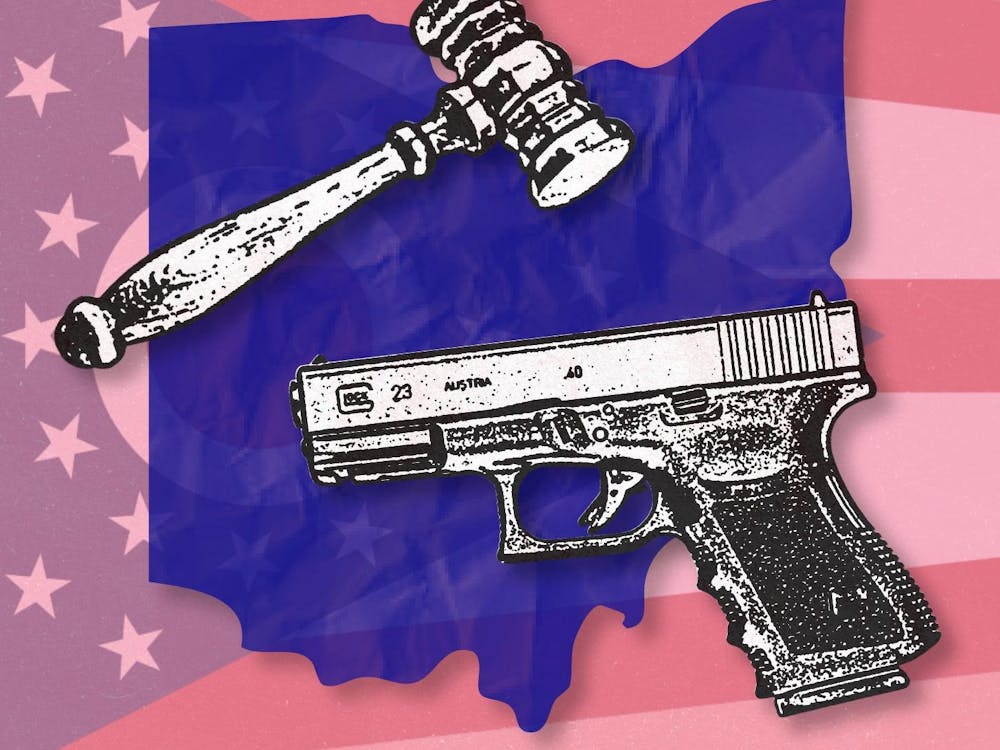At Miami University, it’s not unusual to look around a lecture hall and see Starbucks cups dotting the tables around you, following pit stops made by students at one of the three on-campus locations.
Students being able to easily use dining dollars for their iced oat milk shaken espressos streamlines consumption habits. In fact, Starbucks is practically built into meal plans, reenergizing busy and sleep-deprived students, and offering comfort, convenience and strength to make it through taxing academic schedules.
However, students’ “first sip feeling” — a slogan commonly seen on Starbucks cups — might come with a bitter aftertaste, and behind Starbucks’ polished image are ethical concerns that challenge the very narrative it preaches.
Since 2015, Starbucks coffee has been verified as 99% ethically sourced, becoming the largest coffee retailer to achieve this milestone. However, in recent years, critics and whistleblowers have sounded the alarm. In 2020, Starbucks was found to have been conducting business with Guatemalan farms that utilized labor from children under the age of 13. Starbucks issued a statement reinforcing its commitment to Coffee and Farmer Equity (CAFE), but failed to issue statements of concrete action on how to prevent this from happening.
Reporter Brasíl, a Brazilian newspaper, reported that despite its commitment to CAFE, Starbucks may be unaware of its sourcing issues: “Starbucks is unable to guarantee that the coffee sold at its stores is not associated with serious labour and human rights crimes such as low wages, harvest workers eating cold meals, inadequate accommodation and even child and slave labour.”
Despite these various claims, Starbucks continues to state that its coffee is almost 100% ethically sourced.
Even if you are not a consumer of Starbucks coffee, this is a reality check to think twice about the corporations you support and the greater implications this has on the world around you. Our culture of consumption has led to disassociation and neglect of what is happening in the world around us.
In the post Cold War era, the United States entered a new age of dominance and power, allowing for increased globalization and the power of choice and involvement with those around us, including our consumption habits. Today, U.S. consumption is one of the key aspects of our identity. The rise of Amazon, Walmart and Target, as well as the presence of online shopping platforms, allows us to purchase without a second thought.
In the book “One World Divisible: A Global History Since 1945,” David Reynolds said, “The culture of consumption also promotes the consumption of culture.” This demonstrates how this reality is cyclical; in essence, our habits shape our consumption values.
U.S. favorites, from candy such as KitKats and Snickers, to our consumption of other fast food options like Starbucks, all reflect our stances on development. This acknowledgement of the world around us is limited and dismissive, despite reports of child labor law violations, human rights abuses and many other ethical concerns. U.S. citizens keep consuming, despite the news and the facts at hand, shielding them from the realities of the world and only leading to inaction in what is happening around us.
As Miami students, we have the power to hold these larger corporations accountable, especially Starbucks, as its CEO, Brian Niccol, is a 1996 Miami graduate.
Niccol assumed the role of CEO in September 2024, with plans to bring Starbucks back to its roots as the “community coffeehouse.” In an open letter to partners, customers and stakeholders, Niccol highlights his four key areas of impact: “Empowering our baristas to take care of our customers, get the morning right, every morning, reestablishing Starbucks as the community coffeehouse [and] telling our story.”
Enjoy what you're reading?
Signup for our newsletter
However, Niccol fails to reiterate and reinstate a commitment to focusing on sustainable sourcing, growing and processing, despite the allegations and scrutiny that Starbucks has recently faced.
In a changing world with differing markets, this distinction and reiteration must be made. Leaders of these larger corporations set an important example for others to follow, and they have the power to influence the larger global economy.
According to a survey of 1,000 participants, 32% of Generation Z is regularly engaged in activism or social justice work, exploring new avenues of protesting, boycotting and communicating to law and policy makers, to name a few. Through digital and in-person platforms, Generation Z is able to amplify and broaden our voices in ways we didn’t think possible.
Here at Miami, we have a unique opportunity to amplify our voices. We have the power to bring Niccol’s attention to how students and people view Starbucks’ ideals. We hold power in how Starbucks interacts with the world; let’s make it positive.
Joriana Gibbens-Egolf is a sophomore majoring in international studies, Spanish and organizational leadership, with a minor in international business. She is president of Miami University Model Arab League and a member of the Miami University club rowing team.



